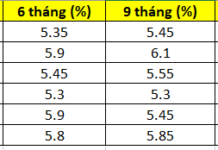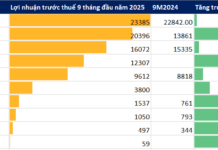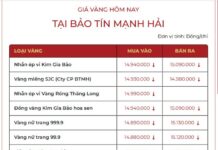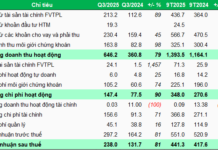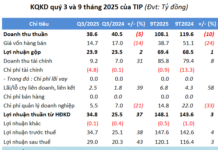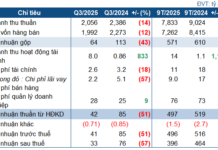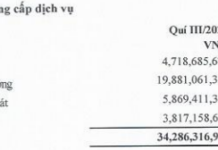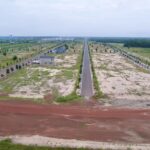Nam Long Investment Corporation (stock code NLG) has just released its consolidated financial statements with revenue of nearly VND 205 billion – a decrease of 13% compared to the same period last year. Deducting expenses, NLG achieved VND 86.5 billion in gross profit – while in the same period, gross profit was nearly VND 160 billion.
During the period, NLG significantly reduced its selling and administrative expenses. However, the Company still reported a loss of VND 65 billion after tax, while in the same period it earned over VND 16 billion. According to NLG, during the period, the Company continued to hand over Mizuki (VND 184 billion), Southgate (VND 56 billion), Izumi (VND 62 billion)…
However, the first-quarter profit was negative according to NLG due to the specific characteristics of the real estate industry: Quarter 1 is always the time of year with the lowest revenue, profit and pre-sales. Not to mention, this year the Lunar New Year holiday in 2024 is close to the Solar New Year holiday, so the motivation to receive house handover in the beginning of the year is not high.
Sharing at the recent annual General Meeting of Shareholders, NLG’s management also said that the sales revenue was equivalent to VND 1,160 billion – nearly 5 times higher than the same period last year (VND 238 billion). Sales revenue was mainly recorded from the projects: Akari (VND 490 billion), Mizuki (VND 246 billion), Southgate (VND 283 billion)…, showing that the sales situation is good, indicating that the market is warming up again. However, the Company has not yet recorded revenue, so the key indicators in the first quarter are not very positive.
Therefore, the Company expects the profit drop point this year to be in the third and fourth quarters of 2024.
As of March 31, 2024, the Company’s total assets reached VND 28,822 billion, an increase compared to the beginning of the period. Of which, cash and cash equivalents exceeded VND 2,473 billion. Inventory accounted for a large proportion with VND 18,051 billion, mainly unfinished real estate. Total debt was VND 15,440 billion, and equity was over VND 13,381 billion.
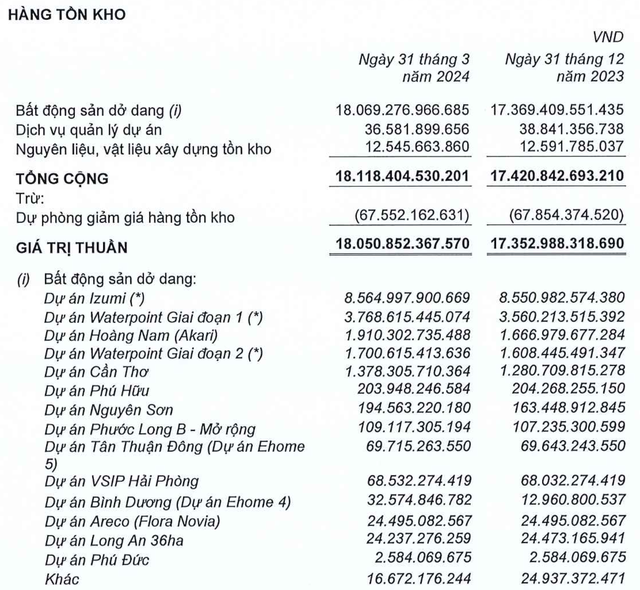
In 2024, NLG plans net revenue of VND 6,657 billion – double that achieved in 2023 and profit after tax of VND 821 billion, and profit after tax of the parent company’s shareholders of VND 506 billion – a slight increase of 5% compared to last year.
In 2024, NLG said it will continue to focus on developing according to the integrated real estate model, including 3 main business segments:
+ Land Development, Housing and Urban Area Projects: continue to implement projects and component projects of integrated urban areas including Mizuki Park 26 hectares (Binh Chanh), Waterpoint Phase 1 165 hectares (Ben Luc, Long An), Akari City 8.5 hectares (Binh Tan), EHome Southgate, Izumi City 170 hectares (Dong Nai), Nam Long Central Lake 43 hectares (Can Tho).
In parallel, NLG also allocates budget to expand the land bank, as well as develop new urban land funds in the long term.
+ Commercial Real Estate Development: promoting urban utilities (city facilities) in integrated urban areas. This year, a number of utilities in the integrated urban area Waterpoint will be implemented and put into operation such as EMASI Plus International Bilingual School, San Ha Convenient Food Store (SanHa Food), Saigon-Waterpoint Polyclinic, Wisdomland Kindergarten…
+ Investment and Capital Mobilization: raising capital and optimizing capital sources by maintaining long-term cooperation with long-standing partners, expanding opportunities to attract investment from third parties…
NLG’s leaders also emphasized that low lending rates are currently an opportunity: “Interest rates are lower than the period before Covid-19, and may even be competitive with other countries. For example, in developed countries such as Australia, the US…, lending rates for real estate are at 7-8%.”






